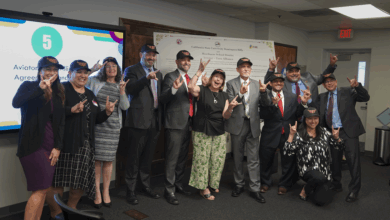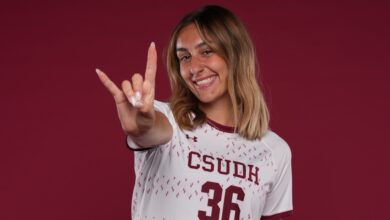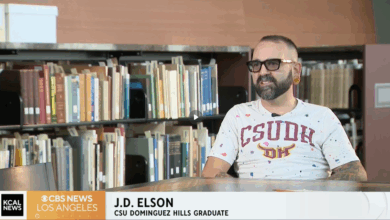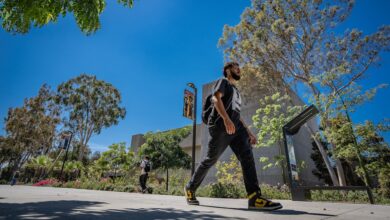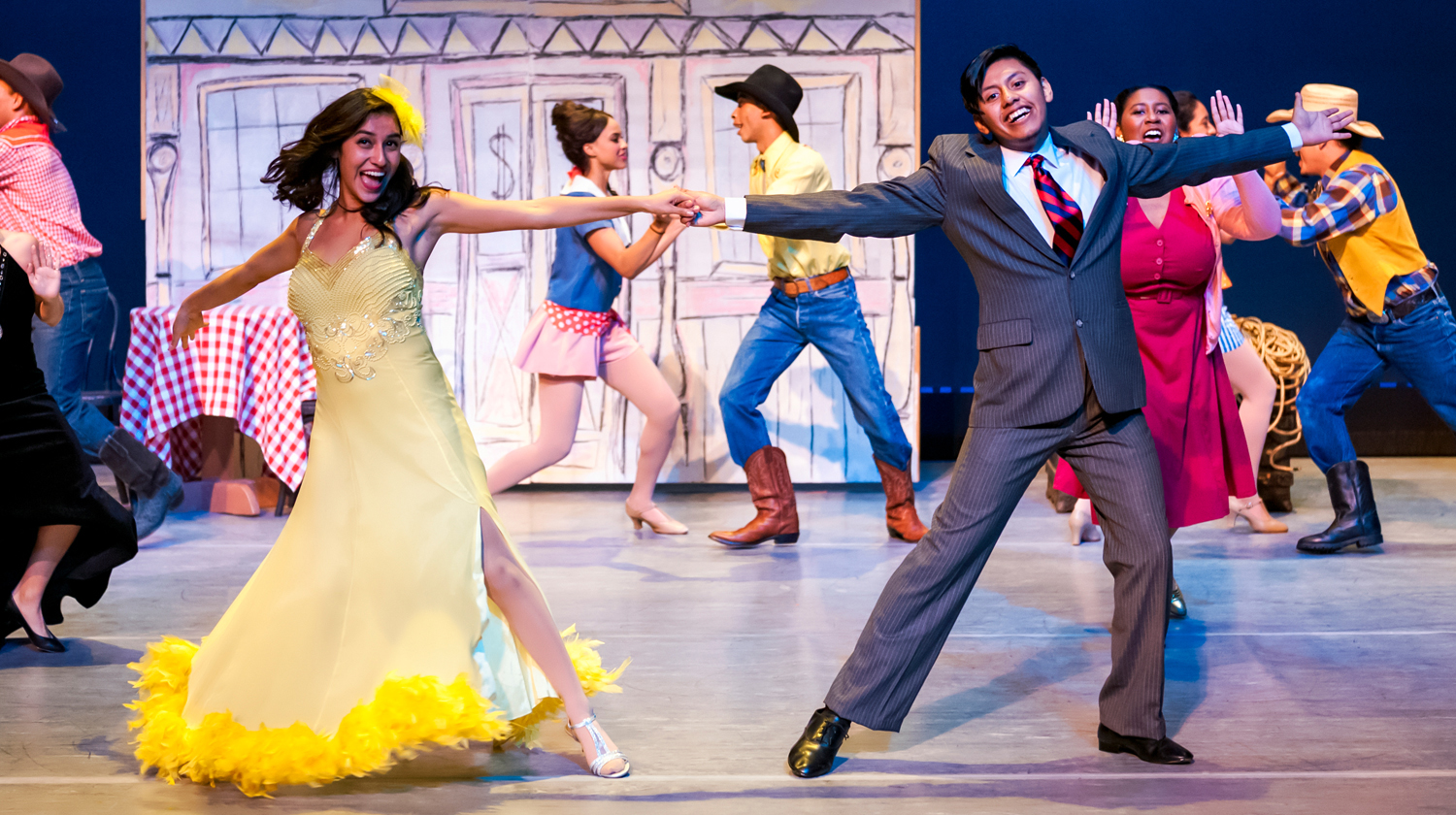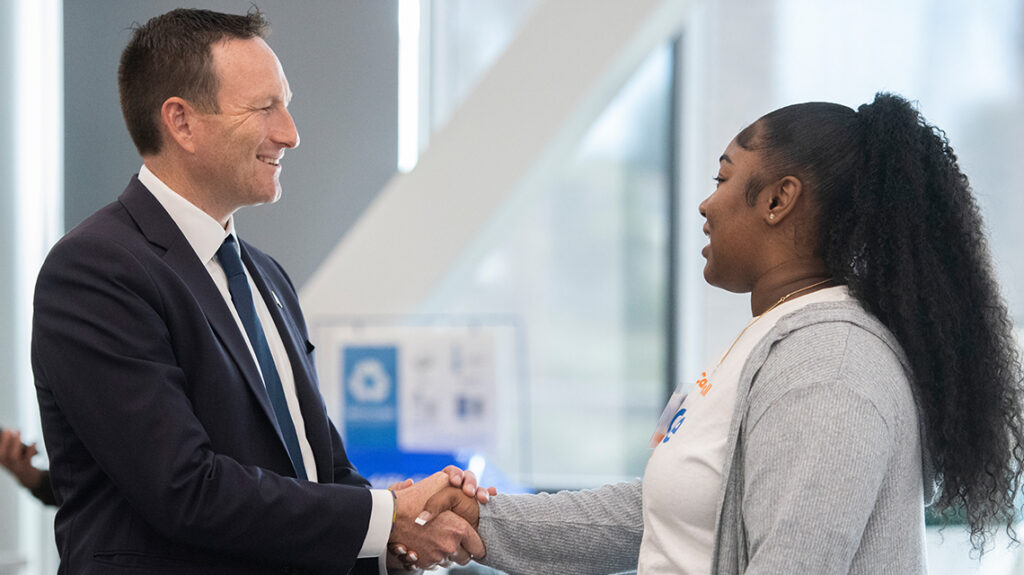
CSUDH welcomed California’s chief service officer, Josh Fryday, on Nov. 9 for a meeting with students in the first cohort of “Californians for All” College Corps, the largest state-level investment in a college service program in California’s history.
Fryday, who heads the California Volunteers Office of the Governor that oversees College Corps, attended a roundtable discussion at the Innovation and Instruction Building to hear directly from CSUDH fellows about what the program means to them and what they hope to accomplish in their chosen service areas.
“We’re so proud of this program,” said Fryday in his opening remarks to College Corps fellows, CSUDH administrators and faculty, College Corps state and local representatives, and Senator Steven Bradford, who represents Senate District 35.
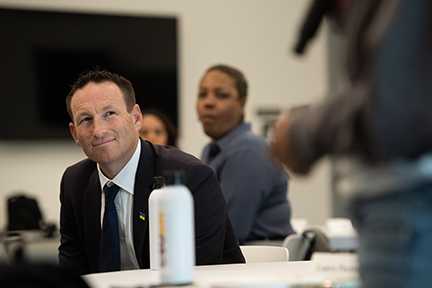
“This is the first state service program to include a population that for too long has been excluded from these kinds of opportunities–that’s our Dreamers.”
Fryday added that he wanted to learn directly from fellows what was working well and what might need improvement, as this is the first instance of what he hoped would be a long-term program. “We want it to expand so that other students have the same opportunity to learn, to serve, and to create change in communities across America.”
CSUDH is one of 45 universities and colleges across the state to participate in the program, which launched on Oct. 7 with a “swearing in” ceremony in Sacramento for more than 3,200 College Corps fellows, including 100 from CSUDH.
Student fellows earn up to $10,000 to help fund their education in return for 450 hours of service during the academic year in one of three key service areas: K-12 education, climate action, and food insecurity.
Doing meaningful work to address community needs can be transformative, said Bradford, a fellow Toro who graduated in 1985 with a B.A. in political science. “This is near and dear to my heart because it brings me back to my beginnings,” said Bradford, whose involvement in community service began with the environmentally-focused LA Conservation Corps.
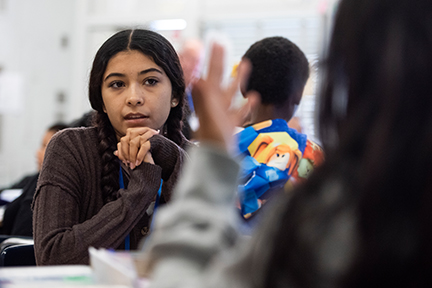
“I know what the LA Conservation Corps meant to those young folks some 30 years ago who are now thriving in their lives, and what AmeriCorps has done since. To have a program like College Corps that allows young adults to get working experience while meeting critical community needs is so important,” Bradford said.
After the roundtable, College Corps officials joined Fryday for a visit to Towne Elementary School in Carson, where Yessenia Maciel, a second-year art major at CSUDH and a fellow in the K-12 cohort, serves as a teaching assistant.
Maciel, 19, is a first-generation college student who relies heavily on financial aid to pay for her education. She chose the K-12 service area because she felt it was the best opportunity for her to make a difference.
“Education is where I felt I could have the biggest impact. I knew I would be assigned to a classroom where I could work one on one with students who might need extra help,” she said.
“I want to teach art after I graduate. This experience helps me see first-hand what that will look like when I have a class of my own.”


